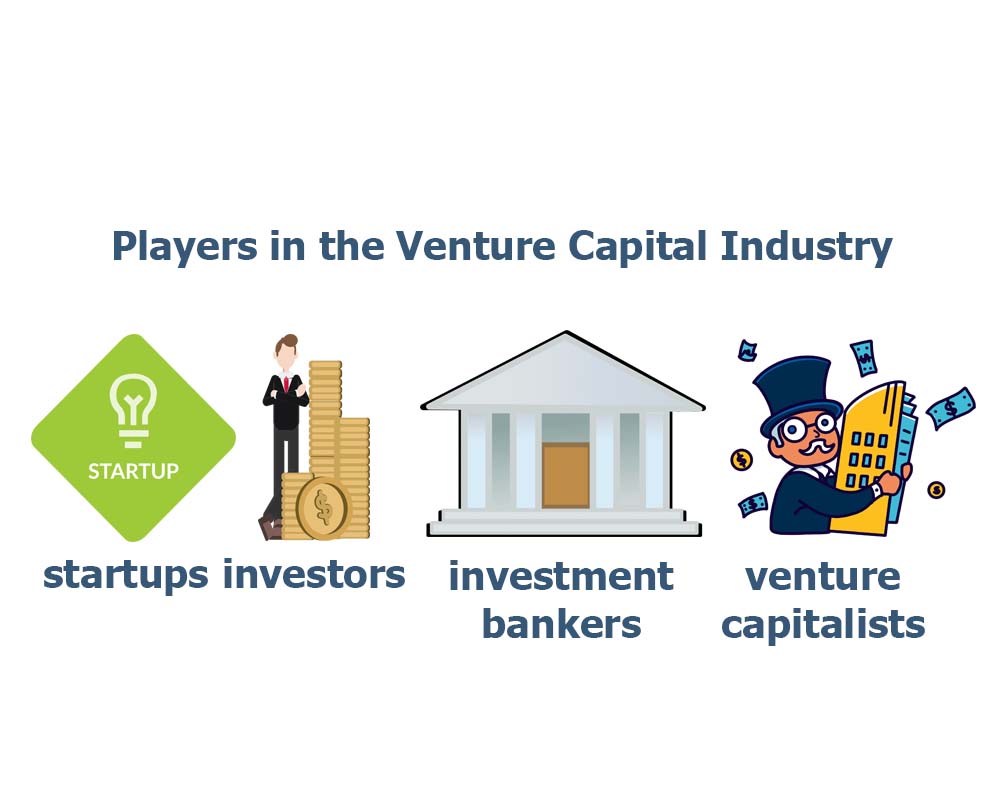A great idea in business can transform a small company into a giant with hundreds of branches. However, most ideas remain undeveloped due to a lack of funds. To ensure the implementation of ideas, funding is needed, and for many small companies with ideas, venture capital provides such necessary financial support, especially at the initial stages.
Understanding Venture Capital
Venture capital (VC) is a form of capital designed to finance new developer companies, which we call startups. These companies are funded at early stages, but a mandatory condition is their significant growth potential. VC firms provide not only financial support but also technical and analytical assistance.
Since startup founders often have extensive experience in their chosen field but may lack the skills and experience in growing a company, venture capital investors assist them in making sound management decisions. Venture capitalists have invaluable experience in this regard.
Venture Capital Companies
VС firms are companies that manage venture funds. Additionally, these firms, after thorough due diligence and analysis, invest funds in startups. Besides financing, these companies perform many other functions aimed at making startups profitable and successful. The success of their investments typically hinges on the success of these startups. Typically, VC firms invest in startups in exchange for a stake in the company, which usually ranges up to 50%.
What are the Players in the Venture Capital Industry?
There are 4 types of players:
- startups
- investors
- investment bankers
- venture capitalists

What are the Challenges of Venture Capital Players?
Startups in need of financial support submit their business plans to venture capital firms (investors) in hopes of obtaining it. Investors meticulously analyze every detail and make decisions regarding the startup’s prospects. If the decision is positive, investors fund the startup companies from venture capital funds, which are filled with venture capitalists’ money. Thus, everyone involved is interested in the success of the startup and its financial reward. When the invested company achieves its goals, investors sell their stake. Then, investment bankers step in, requiring such companies to take them public. The success of all these players depends on how successful the startup becomes.
What are the Stages of Venture Financing?
Funding for startups typically doesn’t occur as a one-time payment; rather, payments are divided into stages. For example:
- seed funding
- early-stage funding
- late-stage funding
At the seed stage, an investor allocates funds for the essentials, such as creating a business plan and developing an initial working product. At the early stage, funding amounts increase as there is a need to scale up the business. The late-stage financing stage is characterized by companies already starting to generate profit and experiencing stable growth. Although financing is divided into stages, not all investors adhere to this approach.
What is the Difference Between Private Equity and Venture Capital?
Essentially, VC is one form of private equity. The main difference between them lies in the fact that venture capital is intended for investing in startups and companies in the early stages of development. Private equity is used to finance companies that have already undergone the process of establishment.
Properties of VC
- invests in startups
- does not have a controlling stake (up to 50%)
- can participate in the management of the company
- more popular in the technological field
- investing in companies that are not yet profitable
- receive income from the sale of a share in the company
Properties of Private Equity
- investing in already established companies
- has a controlling stake (more than 50%)
- participates in management and work
- receive income from the sale of a share in the company
What are the Most Famous Venture Capital Firms in the US?
Venture capital firms invest across various sectors, but they are most active in the technology sector. Many of them are based in Silicon Valley, but they are also present throughout the United States. For example, some of the most well-known ones are:
- Sequoia Capital
- Kleiner Perkins
- Index Ventures
- Andreessen Horowitz
- New Enterprise Associates
- GGV Capital
- Accel
What is the Importance of Venture Capital?
Starting a new company is very challenging because it requires a significant amount of money and skills to begin operations. Renting premises, buying equipment, hiring employees — these all incur substantial costs, especially when there are no revenues yet. In such cases, venture capital firms can come to the rescue by investing in the new company, provided it is promising. In exchange for their services, they receive a share in the company.
What is the biggest challenge for a venture capital startup?
The main challenge lies in startups securing investment at the cost of losing a stake in the company. Another issue can be overly aggressive external management, which might cause the startup to lose its uniqueness.
Pingback: Alternative Investing: most popular assets and analytics - Stock 'n Investments